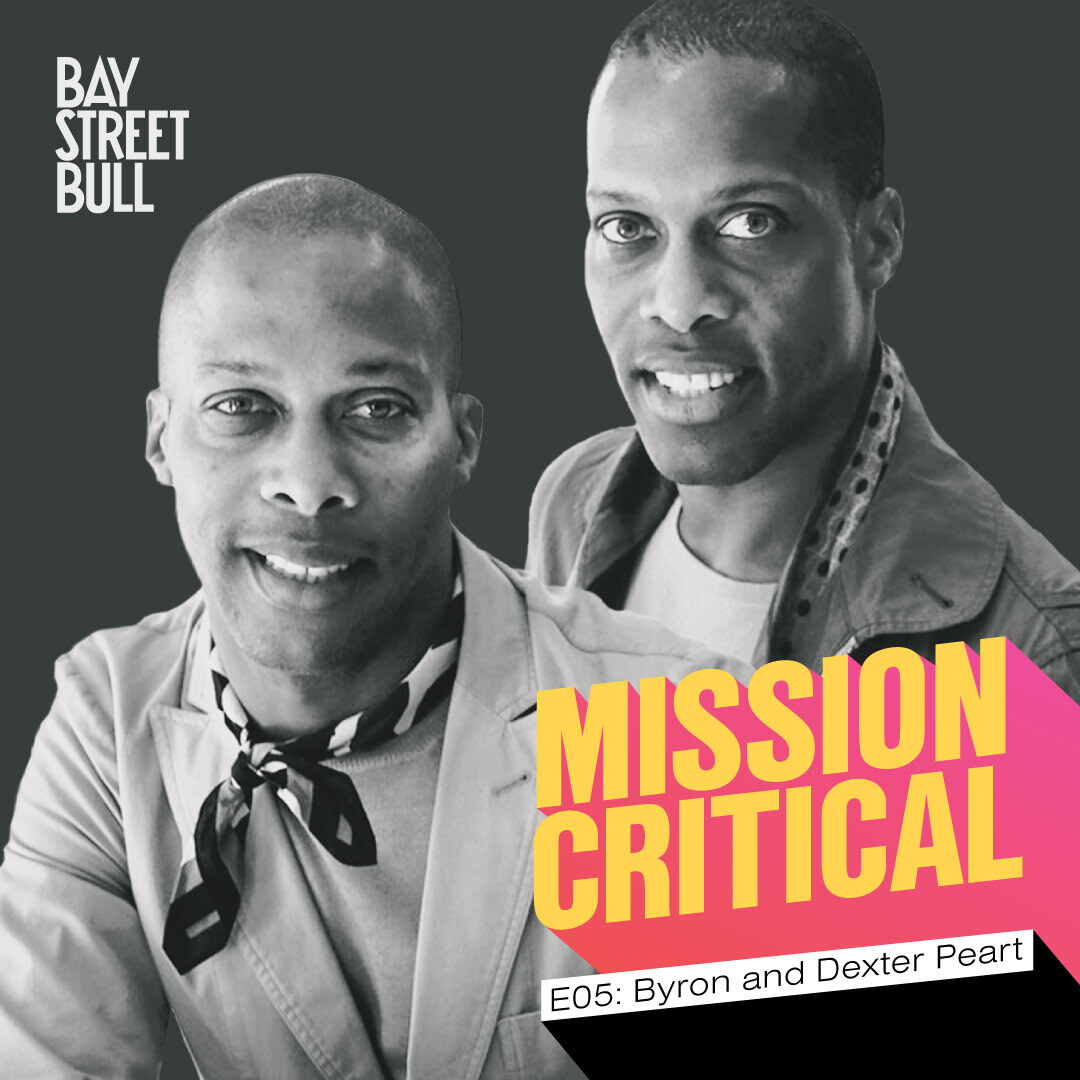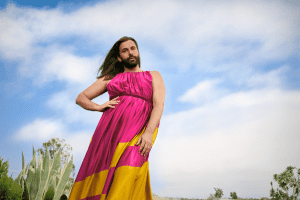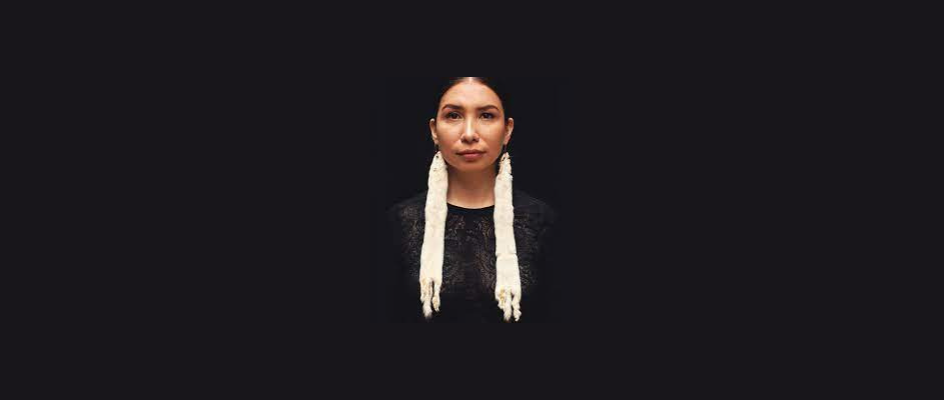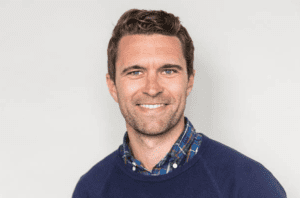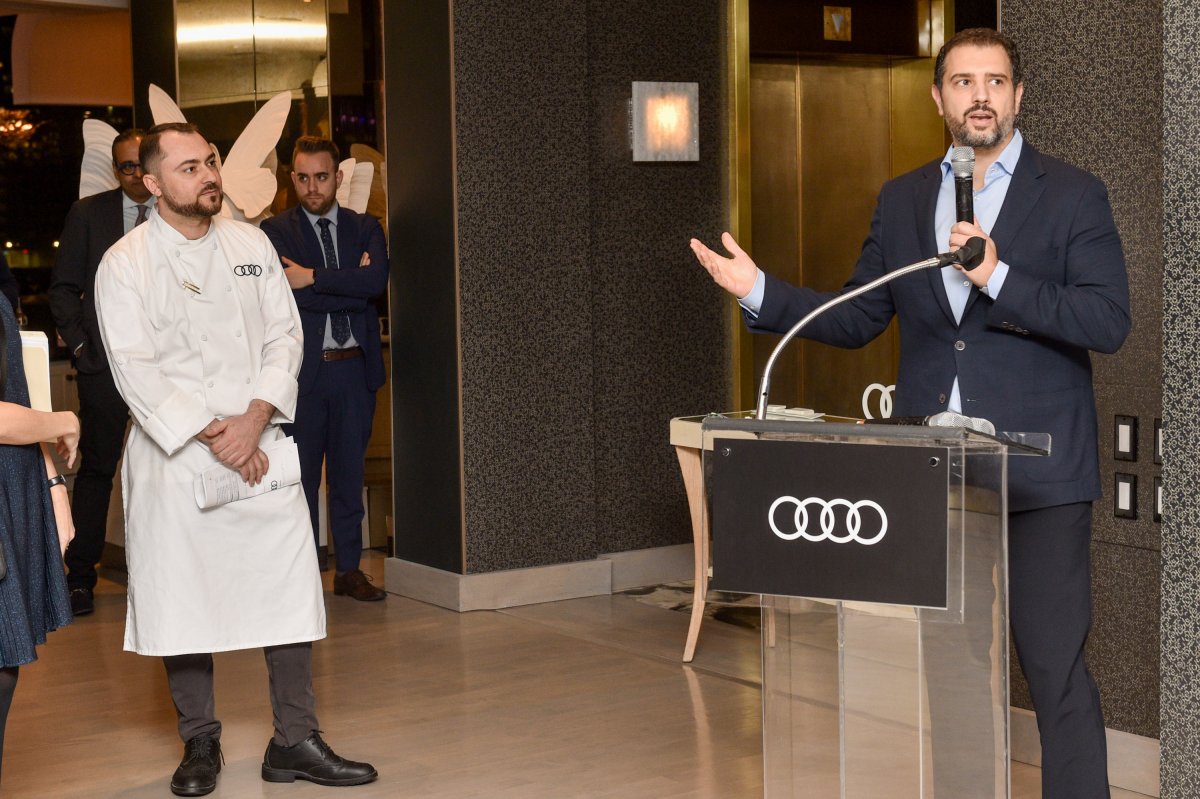Fashion has always been about commentary. No one knows this better than Byron and Dexter Peart, juggernauts of the fashion industry who cut their teeth building their minimalist lifestyle brand, WANT Les Essentiels, into a global empire before departing to start something new. That something was Goodee, an online marketplace that focuses on “good people, good design, and good impact.” In this episode, Lance chats with Byron and Dexter about conscious consumption and the future of luxury.
KEY HIGHLIGHTS
[6:07] What lessons did Byron and Dexter learn from their experience building WANT Les Essentiels that they applied to their latest venture, Goodee? It’s about looking forward.
[9:00] What makes an exceptional brand? Story and consistency.
[15:06] Why start a company like Goodee in the first place?
[19:27] The future of luxury lies at the intersection of purpose and design.
[25:15] Today’s consumers look to retailers for a curated point of view to save time.
[27:35] How does Goodee keep its supply chain, and itself, accountable to its values and mission?
[34:25] Where is the balance drawn between shareholders and stakeholders within an organization?
Listen to the episode below or your platform (Apple, Spotify, etc.) of choice.
INTERVIEW
[INTRO]
“It’s more important than ever for companies to really believe in something, but they have to be consistent about what they believe in and not just sort of jump from one value set to another value set.”
Welcome to Mission Critical, a podcast about the big picture, the purpose, and the values that drive today’s most game-changing companies, entrepreneurs, and leaders. I’m your host Lance Chung, Editor-in-Chief of Bay Street Bull, and I’ll be introducing you to a group of brilliant minds who are making an impact on the world and forging the path ahead. While they may all be very different from one another, the question remains the same: What’s your mission?
Fashion has always been about commentary. Sure, on the surface, it may seem like an industry driven by excess, narcissism, and frivolity, but dig a little deeper and you’ll discover that, like many art forms, fashion is a reflection of the times and, consequently, a commentary of it. After World War II, Christian Dior presented his first collection in Paris, dubbed “The New Look”, which featured rounded shoulders, cinched waists, and A-line skirts—it was a departure from the pragmatic style of the twenties and thirties that aimed to liberate women and instead catered to the nostalgic hunger for glamour and prosperity in post-war society.
Today, fashion continues to reflect the current cultural climate with designers embracing genderless collections in recognition of a more diverse clientele, and brands focusing on sustainability to align with a progression of social values.
Today, I’m speaking with Dexter and Byron Peart, juggernauts of the fashion industry who cut their teeth building their minimalist brand of accessories and apparel, WANT Les Essentiels. WANT, as you’ll hear from the Pearts, was created as the antithesis to the logo-riddled consumer landscape that dominated in 2007. It was an alternative that offered a quiet and sophisticated range of wardrobe staples for the discerning individual.
The Pearts were onto something and grew a modest and niche brand to a global empire with multiple flagships by the time they departed in 2017 to focus on something new. That something was Goodee—an online marketplace that debuted in 2019, focusing on “good people, good design, and good impact.”Goodee comes at a time where consumers are growing increasingly concerned about sustainability and ethical supply chain production. In today’s episode, we chat with Byron and Dexter about conscious consumption, the future of luxury, and why Goodee stands for everything you can feel good about.
Lance Chung: Good afternoon, we’ve got Byron and Dexter Peart, co-founders of Goodee. It is such a pleasure to be speaking with you both today. How are you doing?
Dexter Peart: Great, all things considered.
Lance Chung: Now, you mentioned that you’re both calling in from Montreal. Have you been there for the duration of the quarantine and have you had a chance to, I guess, get some fresh air and just walk around a little bit?
Dexter Peart: We’re pretty fortunate in the middle of the pandemic, at least I can speak for me and my family. We’ve been in Habitat 67, which is a pretty famous residential building in Montreal. And so for the last 14 years, we’ve had these amazing sunlight views from spring and then into summer, and a lot of space for the kids to run around. We’re quite fortunate that we’re living in design every single day in a building like Habitat. So as hard as the isolation has been, I could think of a lot worse situations.
Lance Chung: Right? Well, it’s good to hear that you’ve been able to ride out a quarantine and be with your family and, all things considered, do well. I’m so excited to be talking with you both because I’ve been following your careers since the beginning. And I remember going into a store when I was in university back in Alberta, and I remember seeing this just absolutely gorgeous bag that was kind of like this doctor’s medicine-style bag, which is when I discovered WANT Les Essentiel. And since then, you both have been able to grow such an incredible Canadian brand that’s resonated internationally and really showcase Canadian excellence. I think that’s really incredible that you’ve been able to do that, and I guess my first question is how do you feel about the legacy of what you’ve built?
Byron Peart: Thank you for that. I’m glad that the product resonated with you and when you had that moment at Gravity Pope, who was one of our earliest supporters, and so mini shout out to them as well too, but it was very exciting for us from the beginning. And you were saying that’s our earlier project, but there continues to be a straight line between the work that Dexter and I are doing and back then, when we named that brand that you just eloquently announced as WANT Les Essentiels, we were Canadians who came up with the brand name, originally WANT Les Essentiels de la Vie, so WANT the Essentials of Life. But we were kind of having a study about the necessity of things. So that brand name stood very much for what we were doing with the product, which was to uncover and unpack a conversation around consumption, and what do we truly need versus what do we desire? So, what is essential for our life and then finding a healthy balance between the things that we want to have. It was a really interesting time, that time that you’re talking about, because it was more or less aligned with the advent of the iPhone in the mid- to late-2000s. And everything was changing. Technology needs were changing, how people were traveling was changing, the things that people carried with them were changing, and we had approached WANT, and all of the products that came subsequent to that (the bag that you’re referring to) to create singular items that could last for a lifetime, could be used by a multitude of people, and were timeless. Timeless, classic, super well-made, and had a very strong consideration from an organic and sustainability standpoint in the design. So that’s a thead…I think more than anything proud. Now, if I speak for myself about that brand feeling as relevant today and as timely today, as we felt it did now, I mean, we’re going back 12 years when that was launched. So yeah, it’s exciting to look back at the work that you’ve done with a high level of pride, but then also knowing that the journey and the venture that we’re going on now is clearly an evolution of something.
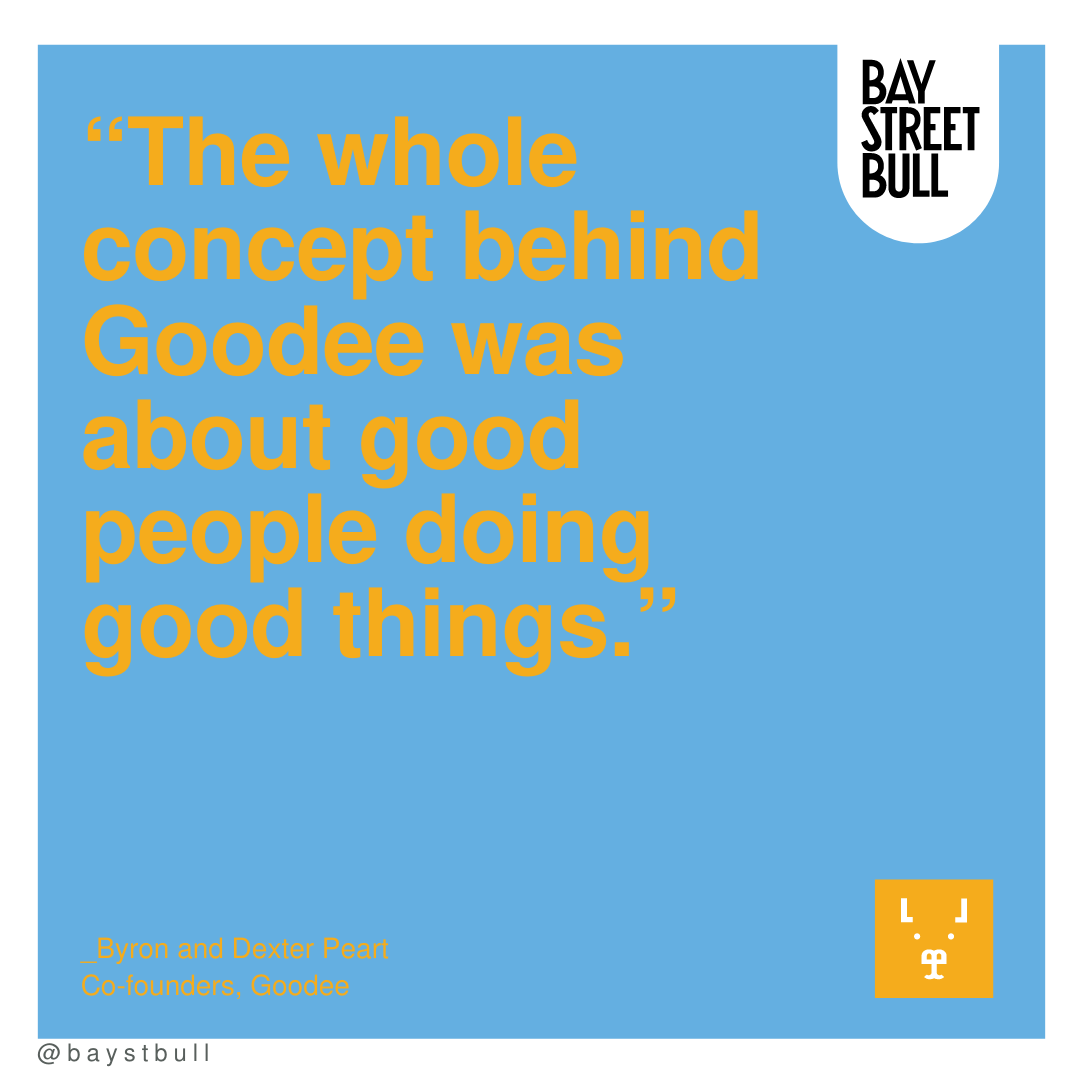

RELATED: Fuseproject Founder, Yves Béhar, on Building Great Businesses Through Design
Lance Chung: Right, and building on this idea of creating these essentials of life and how that’s changed in definition with consumers, you’ve since moved on and built up your newest company, Goodee. What are some of the major lessons that you learned about building a company that you’ve now applied to Goodee?
Dexter Peart: To Byron’s point when we built WANT as a distribution company, and we brought brands like ACNE Studios to North America, Nudie Jeans to North America, and a variety of other brands alongside building our own brand, and then I think, you know, as well as our own retail stores with the WANT Apothecary stores, it was an evolution and it was an evolution of the better part of 18 years. We started out small and then step by step with just a tremendous amount of discipline and focus, we were able to just grow our business, always keeping our ear to the ground on these little shifts in the market. And so, when in the earliest time, when everything was logo’d with Juicy Couture, we saw another direction where things were going to be a little bit more minimal, where form and function was going to matter, where people are going to put value on the quality of products, less so than maybe just sort of the logos on them. I think we’ve sort of come back full circle. So that was a time of understanding a market need, and that’s probably been one of Byron and my greater successes or strengths was just trying to anticipate what we thought people were going to want and what people were going to need in the not so distant future. So the lessons that we learned from our previous business, and then we’ve applied now to our new business, was really just being intentional about trying to lead, trying to stay a little bit in front of where people were now to create a space for what they were going to think was modern, and interesting, and relevant in the future. And so Goodee is really sort of the culmination of that application of us feeling obviously a little bit more confident as entrepreneurs, as business people, as creators almost 20 years in, but also recognizing that that comes with a level of responsibility to really try to push the model forward, the industry forward. And that was one of their things that was difficult for us in the fashion industry, was that we were trying to create something that felt timeless, trying to create something that felt genderless, and ageless. And yet, we were sort of swimming against the system of discounting, and markdowns, and seasonality of product, and categorization of product that just felt a little bit antithetical to a more sustainable, more timeless, more valuable structure. And so what we wanted to build with Goodee was something that felt modern for the future. The kind of company that when new brands, like what WANT was 15 years ago, would come up thinking that that would be the place they wanted to showcase what they were doing. And that really set the fire for the new business idea. And, we’re happy to say it’s been a huge success.
Lance Chung: Now, obviously you’ve met some incredible people on your journey building your respective businesses. You’ve also come across some incredible brands and you’ve, as you mentioned, brought them first to market in Canada. Across the board, what have been the common denominators that signified really the hallmarks of an exceptional brand?
Byron Peart: My first answer, and then I have a feeling Dexter might say the same, is story. And the concept of that is point of view, whether it was our position and vision for building product through bags, but the bags were a vessel for a story that was about being consistent and having things in your life that mattered. Small anecdote to that: you might remember that in early 2009 or 2010, we did a collaboration with J. Crew, which was pretty exciting because you were mentioning that there are many people that we had worked with, but Mickey Drexler, a retail legend, was a big fan of what we were doing. And then he had asked us if we could help develop a collection exclusively for J. Crew at kind of the pinnacle of the brand’s rise in dominance. And we were explaining to him, which he knew well that we were highly focused on materiality, and changing the whole discourse and conversation around organic materials and he was like, that sounds interesting. And then we went on to tell him that we had done the research on their site and that the word ‘organic’ had not even popped up in any product that they made, and this is more than 10 years ago now. And then we built a collection for them at the time called Want Organic for J. Crew. And it was the story. What we wanted to do, as much as it was interesting to sell a product and have that audience, we wanted to take that opportunity and change the narrative around that product and the story of choosing to work with sustainable materials or just approaching design in a different way. So I’d say, story always leads the way. The best thing about what we’re doing right now with Goodee is that Dexter and I also felt that there were so many stories that were untold, and that the way that the system and infrastructure was set up, that certain people just didn’t have the same access to market. And we really wanted Goodee from its most initial state, to be able to tell stories about various types of people doing various types of good work from all around the world, and all different backgrounds. And that’s been an exciting thing that continues to run through our business and how we see it. One of the most important ways to change directions in society is to tell unique and diverse stories through product and about people that are doing really exciting things.
Lance Chung: Absolutely. You mentioned point of view, which I think is increasingly becoming more and more important for brands to understand how to take a stand on your values, to understand, and showcase, and communicate your point of view and what you believe in ultimately, because consumers are becoming much more aware of where they’re investing their dollars, which brands they align with, which ones resonate with them and resonate with their values. So, you’ve created Goodee, which has this foundation on sustainability, on conscious consumption. How important has timing been to start in Goodee? Do you think a company like yours would have been possible five years, 10 years ago in regards to the cultural dialogue around sustainability?
Dexter Peart: Byron said story, Lance, to answer your last question. I would have said consistency because Byron and I have over the years, we always talked and when we had WANT Les Essentiels before, we had this internal tagline that was, ‘always consistent, always essential.’ And I think that in the times that we’re in right now where you see these market gyrations and changes in the cultural zeitgeist and the cultural discourse, it’s more important than ever for companies to really believe in something, but they have to be consistent about what they believe in and not just sort of jump from one value set to another value set. And I think that what we’ve been able to do inside Goodee, because it feels honest and it is a hundred percent authentic. What we’re trying to do right now is try to showcase the stories of companies that are honest, and authentic, and intentional about trying to build a better place for people and a better place for the planet.
So, five years ago, and 10 years ago, these things were happening. Was it the time where a large swatch of the audience was going to notice, or recognize, or want to participate and engage? It was probably too early, but we saw the budding of all of these elements that had happened in other industries. I mean, you can take Whole Foods on, or you could take farm-to-table, or you could take electric vehicles. There are so many different areas in our lives, whether we look at wellness or whether we look at environmental impact or social impact, where there have been fractions of change wanting to be made, but it feels for the first time I can say in my professional career, in my lifetime, when it almost feels like we’re meeting that time when it’s all starting to correlate; where people are starting to take notice consistently that it’s not good enough for a company to just think about shareholder profit, it’s not good enough for them to not take into account how they take care of their staff, or how they take care of their supply chain, or thinking about the after use of their products. There is obviously going to be a consumer who’s demanding more, but I think what’s also refreshing is that there is this company ethos now where they’re simply recognizing that the old way of doing things just doesn’t meet today’s standard. And probably over the next two to five years, we’re going to see a real market change in the way that companies operate. And then also in the way and the behaviour that people choose to consume and place a value with their wallet and with their voices through whether it’s social media or what they tell their friends, or the retention of the company that they want to work for.
Lance Chung: Yeah, absolutely. If we rewind a little bit here, what would you say is ultimately the ethos and mission behind Goodee, and what led you to starting a brand like Goodee because you took a few years or a little bit of time off after WANT before announcing and building out Goodee. What led you down that path? And why did you start a brand like this?
Byron Peart: There’s a high level of frustration personally, and there might’ve been a certain amount of self-interest in that we couldn’t find this ourselves. So Dexter and I were very much ourselves when making those same changes that Dexter was referring to before, about the way that we were eating, the way that we were living, the consciousness of not just ourselves, but the people around us. And we just kept thinking about why was there not one collective destination where you could find and discover all of these things? We were also very fortunate to be people who were able to travel the world through our work, privately and personally, and were discovering really exciting things and exciting stories, exciting makers with again, strong points of view. But we just didn’t feel like there was one singular place from a consumer side where we could go and find all of this together. And then from our backgrounds 20 years in, and I did appreciate your question about what it was like five to 10 years ago when we were, at that time as a brand who was doing its earliest stage of sustainable thinking and application into a brand, we used to put that fun forward. And then we would find in the market, especially some of the most well-known retailers around the world, that they didn’t want to share that information. They didn’t want to communicate that information. And they didn’t because if they did about one brand, then they felt that they were going to open up Pandora’s box for the others. And people would say, well, if this brand is doing that and you want to highlight that, then I have to explain why these other ones are not. So there was a bite to this where we were very aware, acutely aware, that it also needed to create an environment for makers, brands, and products that they were together with other companies that were sharing like mine, so that this kind of creation of a separate state didn’t exist.
So, the really cool thing about the earliest date, no lie, Dexter drew two circles on a napkin. One of them was this conscious consumer and ethical makers, and let’s bring them together. And he used to say something that I never appreciated. Now, I guess I’m saying it on a podcast, but he used to be like, we could be like a Match.com here because we know there’s all these customers who are looking for this. And then there’s all these makers who are just trying to reach that audience, where people they were already mindful. And if they weren’t already there, that they were at least open and willing and intrigued to discover more. And we sit in a really interesting way as bringing these audiences together.
Foundationally Goodee starts with that. It, in some ways, sounds simplistic, but we’re providing a connection for people, a connection for ideas, a connection for product and opportunity for business, which is very exciting for us because there’s a great trading opportunity from the maker side to reach an audience that’s very, very interested. And then from a consumer side where you were before, it’s very exciting for consumers to be able to say, you know what? This is the way I want to consume. This matches my values, and discover other brands and makers through the same kind of ecosystem.
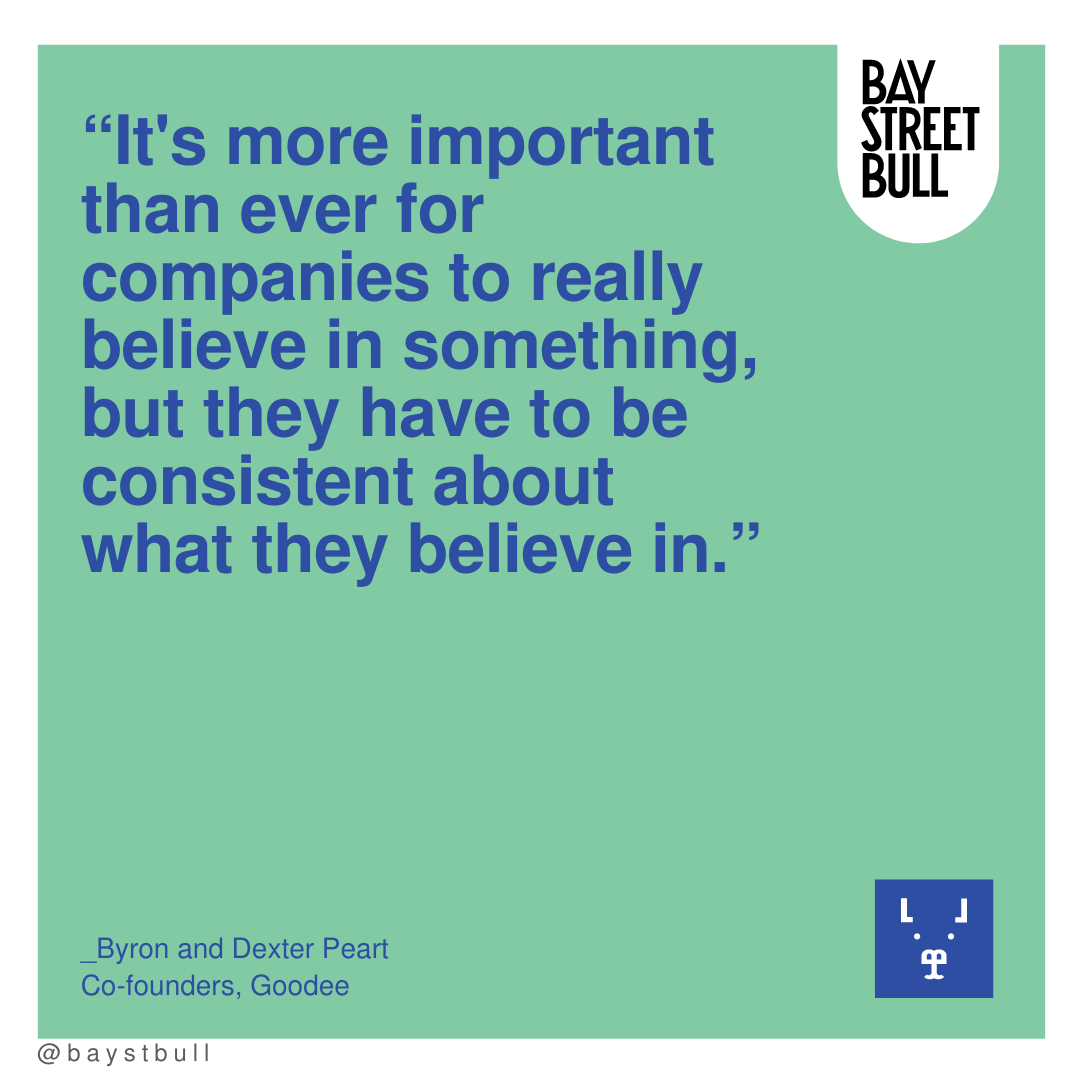

[INTERLUDE]
Times are changing. The intersection of profit and purpose no longer exists on the sidelines of business conversations. It is becoming the new norm. In Deloitte’s 2018 Millennial Survey, 40 percent of millennial consumers believed that the goal of business should be to improve society. That’s something seriously worth considering given that millennials make up about 40 percent of all consumers. In Edelman’s 2018 Trust Barometer, 64 percent of people around the world reported an expectation of CEOs to take the lead on social change, and 84 percent expected CEOs to influence policy conversations on social issues.
The data sends a clear message: companies must step up, or get out of the way. Consumers are voting with their dollars and expect the companies they support to do more than simply deliver a product to a shelf. This is not the future, it’s now, and entrepreneurs like Byron and Dexter are leading the charge.
Lance Chung: It’s interesting to compare a company like yours and see it as a matchmaking company. But it’s true, in that, for so long it’s been, at least in my experience as well, difficult to find companies that lead with sustainability and conscious consumerism, and the ones traditionally that I would come across would really have this kind of hippie granola aesthetic for a long while before we were able to see that beautiful design and sustainability don’t have to be mutually exclusive. They can be two things in one, and you can find beautiful things, but also know that when you’re supporting these brands and these products, you’re also making a choice that aligns with your values. Do you think that the quality and design of sustainable and socially-conscious products has evolved over the years, or has it just been that we haven’t unearthed them?
Dexter Peart: That’s a great question, Lance. If you rewind about two years, we were having that same moment, right? We definitely knew, to Byron’s point, that the whole concept behind Goodee was about good people doing good things. And for us, that was where we started and we had this idea of telling these amazing stories about people and then telling about the impact that resonated from those actions, and who would’ve thought that the third piece that Byron and I hadn’t actually thought about first, was how important design was as an ingredient. It was actually the last thing that we realized, and yet it’s what we’ve been spending 20 years working on was that the power of design really had the potential to make what was inspirational, also aspirational. And then through that, we were able to really sort of hone in on this new, very strong belief that Byron and I have, that the future of luxury is really at that intersection of brands and companies that are very purposeful, but also put design as core and intentional to what they do. And they’ve never been antithetic ideas, right? If you read Dieter Rams back in the day, it all speaks to things that are going to be built to last, things that are functional, things that are made with a really great quality, things that are made with the kind of materials that have the least amount of pressure on earth and on people.
So, these concepts are very strong in the design world. It just needed to be brought back into a conversation about sustainability. And that’s how we plan to lead, specifically, is to show, to your point Lance, that you can have a product that is beautifully made, highly valuable, something that’s going to be a souvenir within your life or around your home, or a great gift for friends, but that also has some strong, purposeful, intentional impact, whether it be the people that it serves or whether it be its relationship to the planet and how little it disrupts our environmental footprint. So, there’s a really nice cohesion around that conversation and something that Byron and I plan on really being quite vocal about that when you mix design with ethical or sustainable or responsible products and services, you really get a whole other area of excitement in aspiration and inspiration.
Lance Chung: Yeah, and you know, what’s also been really exciting to see is this proliferation in the tech sector coming up at the same time, especially in Canada, where it’s this petri dish of innovation. Seeing these companies do incredible things where they’re producing textiles out of mushroom fiber or plastics that have been recycled, ocean plastics, that not only perform, but also can be repurposed into something beautiful. And it’s really cool to see the tech sector and the fashion sector, or the design sector coming up at the same time, and seeing this intersection between values and the opportunity for collaboration between these two communities. Have you noticed anything on the tech side, the tech startup side, that has caught your eye in terms of any innovation or products that align with the mission behind Goodee?
Byron Peart: It’s a great question and Dexter, maybe you could think of something off the top of your head. I was going to make a connection because where you ended the question is not exactly what I was thinking, but what I thought was interesting and, if you’ll allow me, is that when you were speaking about the tech sector, what I think is very unique is this willingness and readiness, and I think that extra touch on it earlier to chart new territory and to carve a path for the future. And what we found from our history is that, typically, many industries are still living in a system or mentality that predates these times. And what’s become more and more interesting for us is that the consumer and the public, ultimately, is telling the market its interests and desires. Now technology is responding to that. What we’re trying to do is a direct response to a need. And I believe that why these tech companies are continuing to push and to trailblaze is because, for the most part, the way that industry has been run or built or is ingrained, is archaic. And I think that even if I take something as simple as the marketplace, which is what we’re building, is that the notion of it, and there are many great players in the technology space, but ultimately from a business standpoint or from a reach or a scale, the idea encourages an endless supply of merchandise, right? So, if you were in the home space or if you’re on a sneaker site, the goal is to get as many people as possible to put their merchandise onto that platform, and then that provides a limitless amount of choice and a limitless amount of engagement. And it feels interesting now to see a new kind of convergence where recognizing that a consumer doesn’t actually want to go through 10,000 options on a platform, and that they want instead to find a partner from a business or a technology app or whatever, that helps them make better choices, helps them curate their own assortment, helps them save time. This is a kind of a new approach that I believe is much more closely aligned to where the consumer is at today and definitely where the consumer will be going. I’d say that technology and what’s happening in terms of movement and development in Canada, as well too, is hyper-focus on consumer behaviour and solutions management for consumers. And I strongly believe that what we are trying to do is to be able to create solutions and more value propositions for an end user.
Dexter Peart: I would just add on that one, Lance. I was just thinking, and we use Shopify as a platform for Goodee since the very beginning. And when I think about even people that are experienced in business like Byron and I were where you see that there’s this much lower barrier to entry right now where two students can come up with a mushroom button. And in the past you had to walk through all of these hurdles to be able to go to market with something like that. And I think now more than ever anything, this was sort of born out of the 2008 crisis as well too. Now we see that innovation can happen quicker and there’s a much lower barrier to entry for ideas and innovation. And I think that that’s really helped, especially here in Canada, companies that want to try something new, you don’t have to go through, ‘Oh, I have two years of research and development and then have to figure out what a supply chain looks like, and a distribution channels, and then figure out how to market what we’re doing. One of the things that we’re really excited about, about what we’re doing, with Goodee is that we have a vision that some of these great smaller ideas can come to market. Brand X can have their own small Shopify account, but they can’t be amazing at everything. They’re going to be looking for that technological experience and prowess. They’re going to be looking for that customer acquisition capability. They’re going to be looking for a variety of things they can’t necessarily do all on their own. And I think that’s where we really can help to enable and strengthen their businesses, and that’s what we’re really excited about.
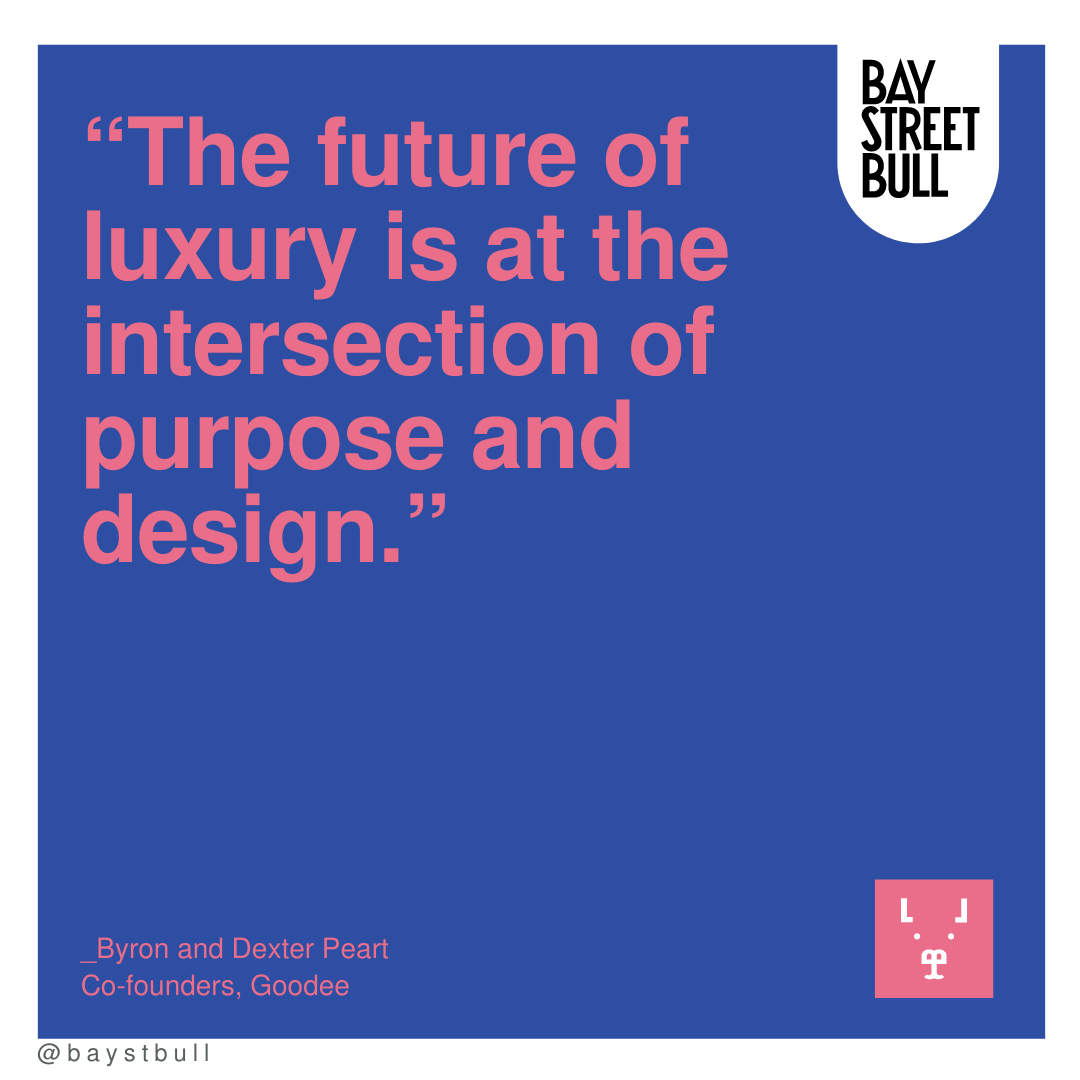

Lance Chung: Going back to the site and browsing through the different artisans and brands that you have on Goodee. How do you go about sourcing them? And what’s your criteria for bringing them on board?
Byron Peart: It was exciting at the beginning, and Dexter kind of touched on this really basic pillar and value set that we started off with. We were like, we want first and foremost to change the whole dynamic about design and sustainability, and also which companies are driving a significant impact in their own right. So good design, good people, and good impact are the pillars of the company. And it’s kind of the first gut check with any partner that we work with. It’s exciting because you could pretty much tell that instinctually, and then definitely in the earliest stage of which kinds of partners would fit the mold. Subsequent to that, which it’s changed quite a bit Lance, so it’s an interesting question. If you had asked us 18 months ago, when we were just starting, we would go and it started with a lot of brands and companies or makers that we had come across in our own journeys, and then we speak to them and say, you know what, we’re launching this platform. We want to highlight stories of people that are doing amazing work like yourselves, and bringing them all together. And then enter: we would come back with an assessment tool and start asking them pretty significant questions about how they produce, how their companies are set up, what their mission statements are, how they report on that. And many of these partners were saying, you know, no one’s ever asked us this before. And so all of the work that they do every single day to get up the way that their teams are focused, wasn’t resonating necessarily with their trade channels. And so that was the beginning of how we built the whole assessment from there. We have many companies and brands that are B Corp certified. We are, ourselves, for anyone in the audience, B Corp certification organization that looks at a company’s commitments to people and planet, looking at the value system that is as much about creating value for society as it is for financial profits. So it’s an organization that promotes for-profit businesses, at the same time promotes companies being a force for good and for change. So we’re looking often in this group of makers and saying, these people have already gone through a high level of assessment, they’ve done the reporting. And then if their brand and company is also aligned with what we’re doing, then we’ve invited them to come into the Goodee universe. Subsequent to that, since we’d been launched, we’re getting an incredible amount of submissions. So it completely changes the dynamic of us going out and searching, which we of course continue to do with our buying and merchandising team. But we get a lot of our audience and consumers who were like, I love what you’re doing. Do you know about this brand or that brand, or they themselves are the maker. And they really feel that, I’ve been waiting for this and I’d love for you guys to consider our product.
And then we’ll go through what takes something in and around maybe a month of process of getting to know the company’s going through an assessment report, meeting them physically when it was possible before—course we’ve adapted in that way now—but it’s exciting because we know quickly if there’s an alignment and that’s really an exciting thing because these companies have done so much of their work, whether it is in terms of how they source their supply chain management, their packaging and… this story, it’s not just a messaging point. It’s really how they see business. And then together with Goodee, we’re able to celebrate their work and their impact with other companies that are doing, in most cases, something very different in terms of the impact that they’re creating.
Lance Chung: And it must’ve been, especially at the beginning, an incredible journey to have gone out, and sourced, and met all these really wonderful companies that are creating beautiful products, but also, you know, items that align with your values, as we’ve been talking about. I was actually on the site recently and there was this one brand, I think it’s called Baba Tree, and the woven baskets are so, so beautiful. And it’s so great to see these new brands that may not have had the platform or the distribution being put in front of a new market. When it comes to the discussions that you have with these brands around their values and how they go about doing their business. How do you keep them accountable? Is there a review process at certain points with your relationship with these brands and ultimately, how do you keep yourselves accountable?
Dexter Peart: I’ll continue on that. So, because we’re still young, we have a review process right now that’s in theory every two years. We obviously haven’t met in two years because we’ve been live for 13 months, but that implies almost like you’re going to just get back together and sit again with them after too. What we’re actually doing, and I love that you just brought up Baba Tree and I’m thrilled that’s one of the brands and products that resonated with you. Today, what our audience and consumers are not seeing is that we’re in regular engagement together with our partners and seeing the impact that they’re making live. And in the case of Goodee, we’re working together, it could be sometimes that a partner’s working on, or has an idea and then they present to us if we could be, for instance, an exclusive partner to help to share that story or that narrative. So we get deeply involved in all elements of the impact lives. So it’s not just in the product, but we ended up building that together with them. With that team at Baba Tree, even last week, we got an update from them and new sanitation property that they just developed that they built for their workers. So again, while the marketplace sometimes could feel like it’s just a transactional or transitory point in many cases with Goodee, we’re living this day in and day out with our partners and are regularly engaged. But what we’re doing right now, which we’re very excited about is this fall, we had built our first round of this sustainability assessment about 15 or 16, 18 months ago. And we’re updating that to another level, and today, most of that is internally used from a reporting standpoint. This fall and winter, we will start to share that externally to the end consumer. So they’ll also begin to get a stronger window into the impact that’s being made through the purchases that they buy.
Lance Chung: And I guess to your point, it is much more of a collaboration versus a transactional relationship. And it’s a bit of an ongoing dance where you’re maintaining consistent communication, and rapport, and relationship building with these brands that align with you. How do you think purpose and profit can co-exist harmoniously and even bolster each other? Because I think, you know, in the past there was maybe this idea that they were church and state, and two very different entities. And now we’re seeing a lot of companies bring these two together and show that you can build a company for-profit, but also one with purpose, and that contributes back to the community in some sort of regard. How do you think those two coexist in your experience?
Dexter Peart: Well, Lance, the good news is that there’s a tremendous amount of empirical data now that proves that out. So we don’t have to be on the call to be able to just be suggestive. I think that we see a direct line that companies, and even now during a pandemic, that have fostered a strong sort of ESG (environmental, social, and governance) inside their business practices have actually sort of had better results, better profitability results, better retention results that we spoke about a little bit earlier as well, too. And I think that we are moving into that age where when you look at the culture of employees and customers that are just saying, guys, listen, of course shareholders are important, but who are the stakeholders inside your organization? And how are you representing your stakeholders in a meaningful, purposeful way?
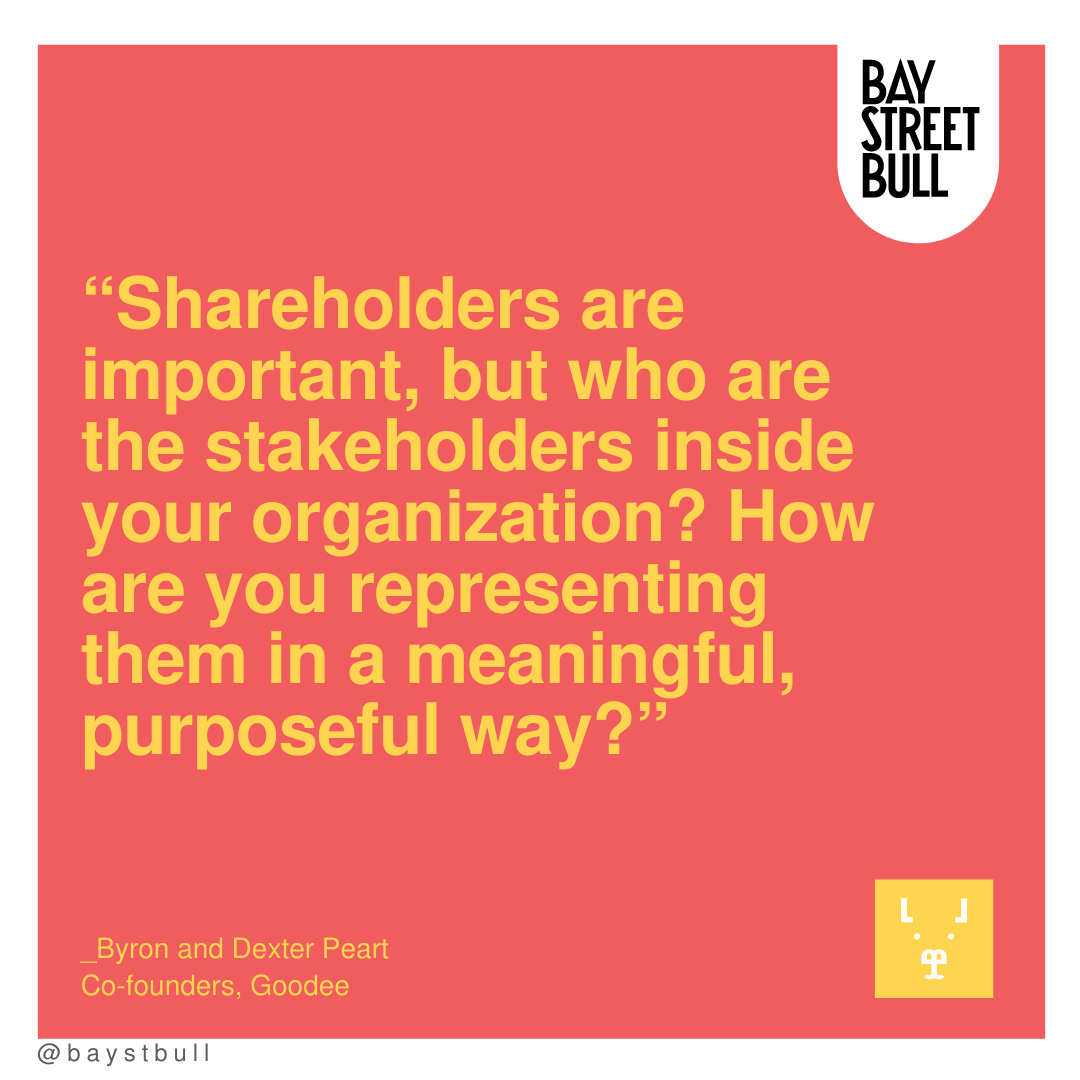

RELATED: Allbirds CEO Joey Zwillinger on Whether Companies Should Pay for Their Pollution
We really think that we’re moving into this sort of new state of people recognizing that we’re all in this together, even to the mask that we’re wearing right now, this idea of us living in silos and then just chopping away at the others. I don’t think it’s relevant. I don’t think it works, frankly. And I think the people that are still resting in that model are seeing a lot of pressure on their business, whether it’s through how people are communicating about their brands and their businesses, or how they can set a path forward for real customer retention and brand love. It’s very exciting to watch this ESG impact from a funding side, from this being part of the general dialogue, and narrative, and conversations we’re having at all levels. You know, whether it’s in the CSR departments, whether it’s within the HR departments, or whether it’s with staff, this next generation is saying, that’s not enough for you to just make a profit. That’s not what businesses exist to do. And I think now more than ever, we’re moving into a time shaken or awakened by 2020, frankly, where there is no turning back
Lance Chung: For sure. I mean, it’s really exciting to see things moving and progressing, and companies having this conversation and doing the work to do it as well. So, I mean, you’ve built obviously some incredible brands and you’ve been in the game for a few years and have some experience under your belt now. What still surprises you and delights you the most about your work and gives you purpose?
Byron Peart: Dexter actually used to make jokes about me because if I saw someone walking around with one of our products on the subway or in the streets, I’m the guy who would come up to them and say, Hey, tell me the story about your bag and how is it working for you? And Dexter was always concerned that they were going to run away from me. But we like to engage together with people and not only the conversation they were having, but the way that we see the world, if that’s resonating. The first thing that came to mind, with your question, I won’t say it’s a surprise but it’s been a delight, is that because we’re still very young, but we consciously decided that we were going to focus on a North American-only business with Goodee. So it’s called GoodeeWorld.com the site, but the world is all the world that we’re bringing in together into the platform.
But we had thought that the attention was going to really come from the Northeast where I’ve been living in New York for the last three years. We had an office there for the last 18 years. We’re readily and often in Toronto, and then obviously being from Montreal, so we just thought that this was going to be our natural first captive audience for what we’re doing. And in the last few months, the conversation that we started, the business that we’ve co-created and worked on with all of these amazing people is resonating everywhere, move way further than we could have anticipated. Across several States and many cities that I’m kind of still surprised about and scratching our heads. It’s like, Oh, wow, did somebody in Missouri or someone in Fort Lauderdale is as interested in what we’re talking about right now when we haven’t met them. There is no connection, but they’ve discovered Goodee in California, has been very exciting for us because it’s our most significant market today. And we’re here in Montreal and the stories, the product, the vision is resonating. And we’re pretty excited about what that means for the potential of the reach for us right now.
Lance Chung: The last question here and building on top of that. If we look a little bit further into the future, what excites you most about the road ahead for Goodee and its potential, and where you want to take the company?
Byron Peart: We’re in this moment right now, I think in this post-pandemic reality, which is critical in thinking as well too, where we started this company as an idea. And it was sort of this kernel of an idea a couple of years ago and our vision was that people were going to be searching for a slower, more intentional life that was really surrounded around home and surrounded around the things that they cared about. And so it’s just really interesting that there’s been these confluence of events that are now pointing directly to a time when people are going to be looking at brands and products that are more sustainably-minded. Diversity is such a critical part of any conversation and for us to be a black-owned company that’s talking about home in a time when everyone’s living at home, and then having, you know, this very online-first property in Goodee, it really just gives us an amazing opportunity to be able to sort of scale our business.
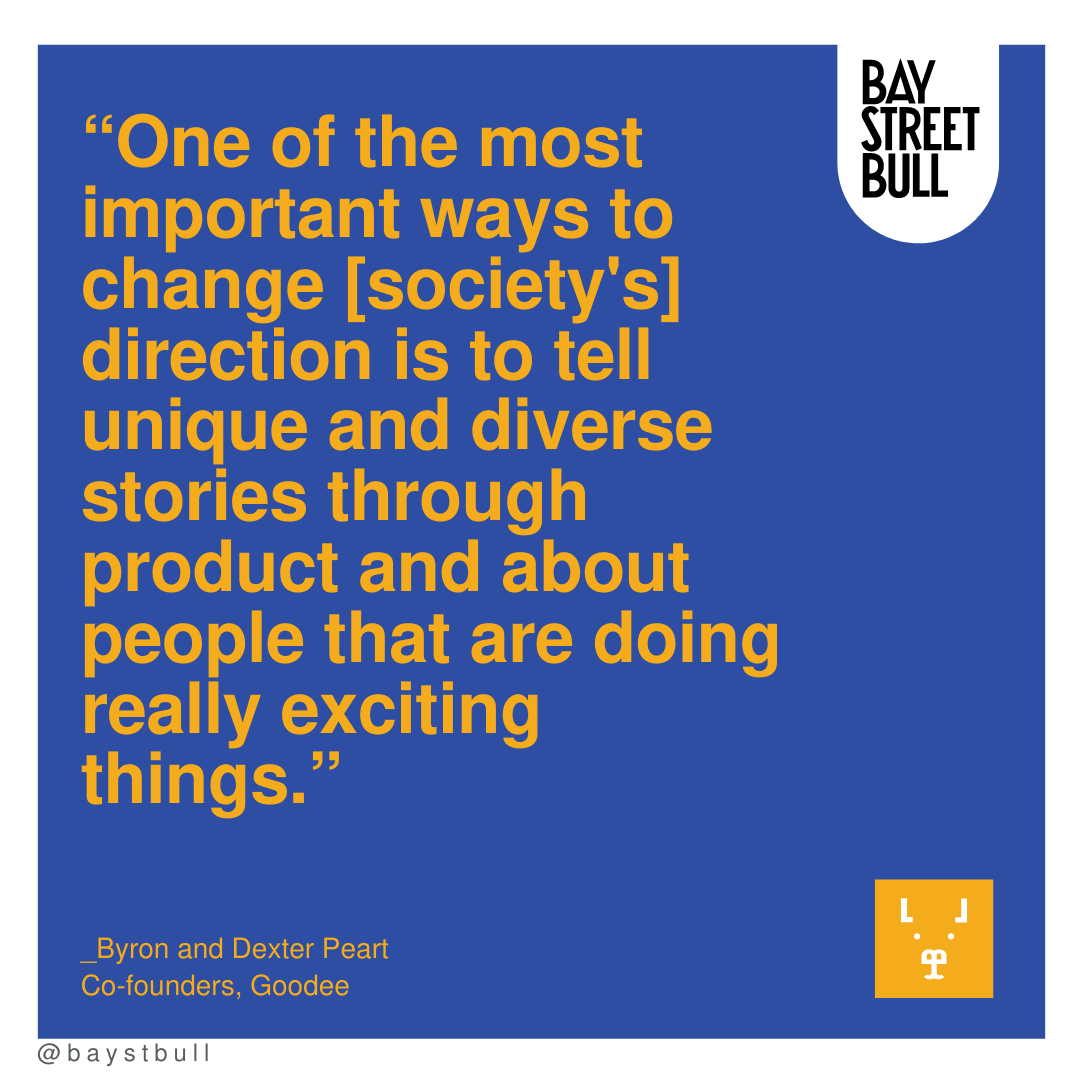

Lance Chung: I’m so excited to see where you both take this company. I think it’s long overdue for a company like Goodee to come around. So we’re going to be watching and seeing how you guys grow, and I’m really, truly excited for you and for also to champion Canadian excellence here. So thank you, Byron and Dexter for this wonderful chat. We look forward to chatting again soon.
Byron Peart: We’re looking forward to it as well too. We appreciate the support
[OUTRO]
At the end of the day, what is it that you believe in? What kind of future do you want to lay a foundation for? What is your point of view? These are the questions that both established and emerging brands are trying to answer for themselves. Conversations around diversity and sustainability are more present than ever, but let’s be clear: they can’t just be talking points. Companies have to EMBODY these values, put in the work, and be consistent in their efforts. It needs to be embedded in their very DNA.
We’re at a critical juncture in history where we’re having challenging but important discussions. Right now, it’s more important than ever to focus on cooperation and collaboration if we want to truly make progress. As Byron and Dexter put it, we’re all in this together.


